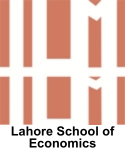Labour Markets
Overcoming Constraints to Female Labor Force Entry
Project members:
Hamna Ahmed, Lahore School of Economics,
Mahreen Mahmud, University of Exeter Business School
Farah Said, Lahore University of Management Sciencesand
Zunia Saif Tirmazee, Lahore School of Economics
The pilot of the study has been funded by the Private Enterprise Development in Low-Income Countries (PEDL) Exploratory grant, 2017. While the full scale up is funded by the joint IZA/DFID Growth and Labour Markets in Low Income Countries Programme (GLM|LIC). In this study we test if a low-cost, motivational nudge in the form of stories of female role-models can encourage female graduates from low-income households to seek jobs more actively. A randomised control trial with 2500 female undergraduate students in 28 female only public colleges in Lahore was conducted to encourage a growth-mindset in the students by showing them a 10-minute video. This video showcased real-world female role models– alumni from sample colleges who were gainfully employed and belonged to a similar socio-economic group as the students in our sample. We collect high-frequency data on job search efforts and outcomes, conducting 3 follow-up surveys over a period of 18 months after the intervention with a balanced panel of 1443 students. We find that 18 months after the intervention students in the treatment group are significantly more likely to be working, an effect driven almost entirely by students belonging to households with significantly lower incomes and lower parental education. These findings indicate that a relatively low-touch motivational nudge can be effective in improving labor force participation under difficult labor market conditions given that our last follow-up survey was conducted after a nation-wide Covid-19 lockdown in Pakistan in 2020.
(AEA RCT Registry, the policy paper and policy brief are available here:
http://111.68.102.42:8080/xmlui/handle/123456789/17122;
https://www.google.com/url?q=http%3A%2F%2Fcreb.org.pk%2Fuploads%2FPolicy%2520Brie
f%25201-20.pdf&sa=D&sntz=1&usg=AFQjCNH8jqn4r_v8JQOrYGDrF0OoJlMJUA )


